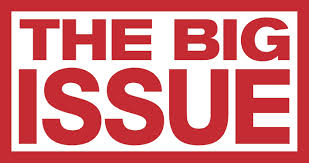issue
英 [ˈɪʃ.uː]
美 [ˈɪʃ.uː]
- n. 问题;流出;期号;发行物
- vt. 发行,发布;发给;放出,排出
- vi. 发行;流出;造成…结果;传下
使用频率:

记忆方法
将“issue”与“ie”(如“sweet”)结合记忆,想象一份文件(issue)上有着甜蜜的(sweet)符号,这样可以帮助记住“issue”这个词意味着“问题”或“议题”。
以上内容由AI生成, 仅供参考和借鉴
中文词源
issue 问题,议题,期刊,发行
来自古法语issue,出口,出去,来自拉丁语exire,出去,词源同exit,ion.由向外走出引申问题,议题,期刊,发行等多种词义。
英语词源
- issue
-
issue: [13] The words issue and exit are closely related etymologically. Both go back ultimately to the Latin verb exīre ‘go out’. Its past participle exitus became in Vulgar Latin exūtus, whose feminine form exūta was used as a noun meaning ‘going out, exit’. This passed into Old French as eissue, later issue, and thence into English.
The original literal sense of the word still survives in English, particularly in relation to the outflow of liquid, but has been overtaken in frequency by various metaphorical extensions denoting a ‘giving out’ – such as the ‘issue’ of a book or magazine. The sense ‘point of discussion or consideration’ probably comes from a medieval legal expression join issue, which originally meant ‘jointly submit a disputed matter to the decision of the court’, and hence ‘argue about something’.
=> exit - issue (n.)
- c. 1300, "exit, a going out, flowing out," from Old French issue "a way out, exit," from fem. past participle of issir "to go out," from Latin exire (source also of Italian uscire, Catalan exir), from ex- "out" (see ex-) + ire "to go," from PIE root *ei- "to go" (see ion). Meaning "discharge of blood or other fluid from the body" is from 1520s; sense of "offspring" is from late 14c. Meaning "outcome of an action" is attested from late 14c., probably from French; legal sense of "point in question at the conclusion of the presentation by both parties in a suit" (early 14c. in Anglo-French) led to transferred sense of "a point to be decided" (1836). Meaning "action of sending into publication or circulation" is from 1833.
- issue (v.)
- c. 1300, "to flow out," from issue (n.) or else from Old French issu, past participle of issir; sense of "to send out authoritatively" is from c. 1600; that of "to supply (someone with something)" is from 1925. Related: Issued; issuing.
权威例句
- 1. The key issue was whether the four defendants acted dishonestly.
- 关键问题是4名被告是否存在欺诈行为。
- 2. She avoided the issue by ordering a turkey sandwich.
- 她点了份火鸡三明治,以此来避开这个重要问题。
- 3. He said the issue was not a major irritant.
- 他说那个问题不是什么大问题。
- 4. The issue threatened to decouple Europe from the United States.
- 这一问题可能会割裂欧洲同美国的关系。
- 5. This issue, more than any other, has divided her cabinet.
- 主要是这一问题使她的内阁产生了分歧。